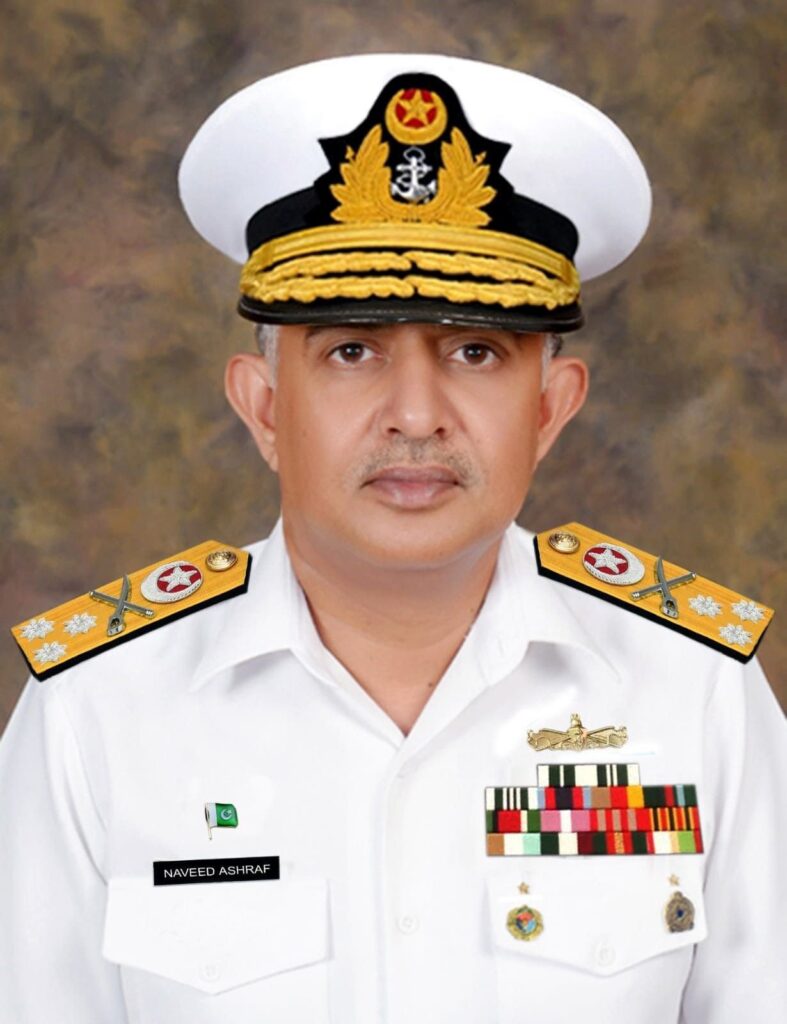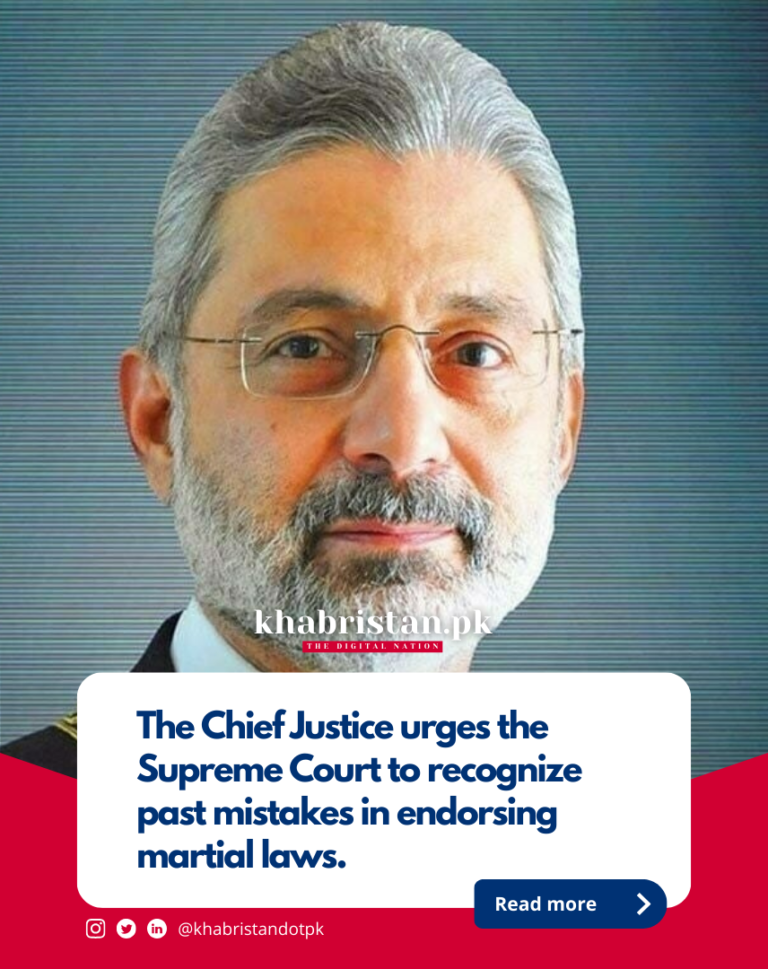Islamabad: Vice Admiral Naveed Ashraf has been appointed as the new Chief of the Pakistan Navy, and the Change of Command ceremony is scheduled to take place in Islamabad on October 7th.

According to a spokesperson for the Pakistan Navy, Vice Admiral Naveed Ashraf is set to be promoted to the rank of Admiral on October 7, 2023, assuming the responsibilities of the office.
Vice Admiral Naveed Ashraf obtained his commission in the Pakistan Navy’s Operations Branch in 1989. He is a graduate of the National Defense University Islamabad, the United States Naval War College, and the Royal College of Defense Studies in the United Kingdom. Vice Admiral Naveed Ashraf has extensive experience serving in important command and staff positions.
Islamabad: Vice Admiral Naveed Ashraf has been appointed as the new Chief of the Pakistan Navy, and the Change of Command ceremony is scheduled to take place in Islamabad on October 7th.
According to the spokesperson of the Pakistan Navy, Vice Admiral Naveed Ashraf is set to be promoted to the rank of Admiral on October 7, 2023, taking over the responsibilities of the office.
Vice Admiral Naveed Ashraf obtained his commission in the Operations Branch of the Pakistan Navy in 1989. He is a graduate of the National Defense University in Islamabad, the United States Naval War College, and the Royal College of Defense Studies in the United Kingdom. Vice Admiral Naveed Ashraf has a wealth of experience in serving in important command and staff positions.
Vice Admiral Naveed Ashraf has previously held positions such as Commander Pakistan Fleet and Commandant Pakistan Naval Academy. He has also served in key roles including Deputy Chief of Naval Staff (Operations), Deputy Chief of Naval Staff (Training and Personnel), Deputy Chief of Naval Staff (Administration), and Deputy President of the National Defense University.
Currently, Vice Admiral Naveed Ashraf is fulfilling the duties of Chief of Staff at Naval Headquarters. He has been decorated with the Hilal-e-Imtiaz (Military) and Tamgha-e-Basalat in recognition of his exceptional and courageous service.
During the hearing of the Supreme Court Practice and Procedure Act case, the full court bench, under the leadership of CJP Isa, included distinguished judges such as Justice Sardar Tariq Masood, Justice Ijazul Ahsan, Justice Syed Mansoor Ali Shah, and others. The hearing was adjourned till Monday, October 9.
At the beginning of the session, Chief Justice Isa emphasized that the law in question applied not only to him but also to other senior judges. Despite his reservations, a full court was convened to address the matter comprehensively.
Advocate Ikram Chaudhry, arguing for the petitioner, cited the opening paragraph of the SC (Practice and Procedure) Act, asserting its specific intent. He contended that the law’s provisions encroached upon the judiciary’s independence, emphasizing that certain aspects of the law were unconstitutional.
During the proceedings, CJP Isa questioned the concept of judicial independence and its relationship with people’s rights. He pointed out the contrast between judges’ behavior during martial law and their response to parliamentary legislation, underscoring the need for the court to acknowledge past mistakes regarding martial laws.
Justice Minallah delved into the Act’s objectives, explaining that it aimed to facilitate access to justice and maintain the internal independence of the judiciary. The bench debated Parliament’s authority to legislate on the internal workings of the apex court, with Justice Ahsan seeking clarification on legislative competence and potential conflicts with the Constitution.
The discussion centered on whether the law affected the judiciary’s independence and the right to appeal against Article 184 (3) judgments. Justice Ayesha Malik highlighted concerns about the absence of appeal against a full court’s decision, while Justice Mazhar noted existing laws with provisions for appeal.
Throughout the hearing, the bench explored the Parliament’s jurisdiction in regulating the top court’s internal affairs. Justice Ahsan asked the petitioner to explain if there was legislative competence for such a law and how it conflicted with the Constitution.








Leave a Comment